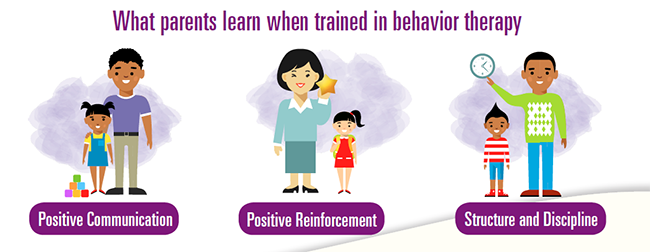Expert ADHD Treatment for Personalized Care
Expert ADHD Treatment for Personalized Care
Blog Article
Your Guide to Locating the Right ADHD Treatment for Long-term Results
Navigating the intricacies of ADHD treatment calls for a nuanced understanding of both the disorder and the myriad choices available for efficient administration. It is necessary to identify that what works for one person may not always produce the same results for another.
Recognizing ADHD and Its Impact
:max_bytes(150000):strip_icc()/adhd-treatment-4157278_FINAL-848b0cfc4d0b42a0b66c3d2ca894e9dd.png)
In adults, ADHD can lead to difficulties in office atmospheres, influencing efficiency, time monitoring, and interpersonal relationships. Commonly, undiagnosed or poorly managed ADHD can add to co-occurring mental health and wellness problems, such as anxiety and depression, additional complicating a person's overall wellness.
The societal assumption of ADHD can vary, resulting in preconception and misconception, which may hinder individuals from seeking assistance. As recognition grows, it is necessary to promote an environment that promotes understanding and support for those affected by ADHD, emphasizing the need for exact medical diagnosis and tailored methods to mitigate its effect on daily life.
Overview of Treatment Choices
A comprehensive method to dealing with ADHD incorporates a selection of options tailored to the person's one-of-a-kind requirements. These alternatives can extensively be classified right into behavioral treatments, psychoeducation, and lifestyle adjustments, along with pharmacological treatments that might be discovered later.
Behavior treatments, such as cognitive-behavioral treatment (CBT), concentrate on customizing certain habits and developing coping techniques to manage signs properly. Psychoeducation plays a vital role in empowering both individuals and their families by supplying information about ADHD, its difficulties, and efficient approaches for support.
Way of living alterations can substantially impact ADHD monitoring. Regular exercise, a balanced diet, and sufficient rest contribute to general well-being and signs and symptom control. Mindfulness techniques and relaxation strategies can also improve focus and minimize impulsivity.
Support system and family therapy can promote a sense of area and understanding, aiding people feel less isolated in their experiences. Each therapy alternative should be considered in conjunction with the person's preferences and circumstances, ensuring an alternative technique that advertises long-lasting success. Eventually, the objective is to develop a tailored therapy strategy that attends to the details obstacles associated with ADHD while improving general lifestyle.
Medicine: Benefits And Drawbacks
Medication plays a pivotal function in the therapy of ADHD, with many choices offered that can substantially alleviate symptoms for several people. Stimulants, such as methylphenidate and amphetamines, are generally recommended and have shown efficiency in boosting emphasis, reducing impulsivity, and boosting overall habits. These medications function by boosting dopamine and norepinephrine levels in the mind, which are typically dysregulated in those with ADHD.
However, the usage of medication is not without its difficulties. Some individuals might experience side results, including sleeplessness, lowered appetite, or enhanced stress and anxiety. Locating the best dosage can be an experimental procedure, calling for close monitoring by health care professionals. Furthermore, not all patients react to energizer medicines, leading some to discover non-stimulant alternatives, which might have a postponed start of activity or various negative effects.
It is vital for people and their households to consider these pros and cons carefully. Balancing the benefits of symptom management against possible adverse effects is vital for achieving optimal treatment outcomes. Partnership with health care companies can facilitate educated choices, making certain that medicine is component of an extensive ADHD management strategy.
Behavior Modification Strategies

One typically utilized approach is Cognitive Behavioral Therapy (CBT), which assists people identify and transform adverse thought patterns useful site that add to ADHD-related difficulties. Therapist for ADHD. Through CBT, customers discover to set sensible goals, manage time successfully, and establish organizational systems
Another reliable strategy is Parent Management Training (PMT), which enlightens moms and dads on how to strengthen favorable behaviors and reduce unfavorable ones with constant discipline and interaction strategies. This technique cultivates a supportive home setting that motivates behavior improvements.
Social skills training is also essential, aiding people with ADHD navigate social communications extra efficiently. Role-playing and modeling proper actions can boost social proficiency and decrease stress and anxiety in social situations.
Lifestyle Adjustments for Better Administration
How can way of life changes substantially improve the management of ADHD symptoms? Applying critical way of life modifications can cause considerable renovations in focus, company, and psychological regulation for individuals with ADHD.
To start with, establishing a structured daily regimen assists in creating predictability, which can ease sensations of bewilder. Consistent schedules for meals, study, and rest can improve day-to-day performance.
Incorporating routine exercise is also crucial, as exercise has actually been shown to enhance dopamine degrees, boosting interest and inspiration (Therapist for ADHD). Going for at the very least half an hour of moderate exercise most days can be useful
Nutrition plays premarital counseling near me a critical duty as well. A balanced diet plan rich in omega-3 fatty acids, entire grains, and protein can support cognitive function. Limiting refined sugars and high levels of caffeine might reduce symptoms, as these can lead to power crashes and irritation.
Conclusion
Finally, finding the appropriate ADHD therapy requires a multifaceted method that considers private requirements and preferences. A mix of medicine, behavior modification, and way of living adjustments can substantially improve signs and symptom anxiety and depression disorder administration and general wellness. Engaging in psychoeducation and developing organized regimens further sustains reliable treatment approaches. Partnership with health care professionals and open interaction with assistance networks are important parts in browsing the intricacies of ADHD monitoring, ultimately resulting in enduring outcomes and improved lifestyle.
Report this page